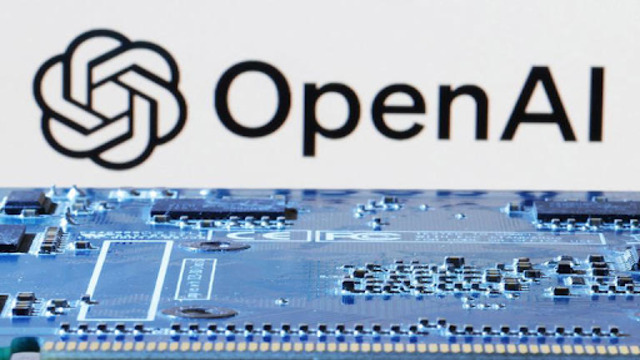
A computer motherboard is pictured with the OpenAI logo in this illustration, created on January 8, 2024. The image was taken by Dado Ruvic and provided by Reuters.
OpenAI, the company behind ChatGPT, has announced plans to restructure as a public benefit corporation (PBC). This move aims to attract more investment to support the expensive and competitive pursuit of advanced AI. The shift marks a significant change from its current nonprofit-controlled model and could shape its future as a leader in artificial intelligence.
The proposed PBC structure, a Delaware-based model, would enable OpenAI to focus on societal benefits alongside shareholder interests. By doing so, the company seeks to balance profitability with its mission of ensuring AI benefits humanity. OpenAI emphasized the importance of raising substantial funds, stating, "We need to raise more capital than we’d imagined," to keep pace with industry giants heavily investing in AI research.
A History of Change and Controversy
Founded in 2015 as a nonprofit dedicated to AI research, OpenAI transitioned to a hybrid model in 2019, introducing a for-profit arm to fund its ambitious goals. This dual structure became the center of attention in 2023 when CEO Sam Altman was briefly ousted, only to return after staff backlash. The reorganization has sparked debates among investors, regulators, and corporate watchdogs, with questions raised about its ability to maintain a fair allocation of assets between its nonprofit and for-profit entities.
In its announcement, OpenAI highlighted that its nonprofit branch will retain significant shares in the newly formed PBC, making it one of the most well-funded nonprofits globally. The company also outlined how the new structure aligns with competitors like Anthropic and xAI, which recently secured billions in funding.
Pushback and Legal Hurdles
OpenAI's restructuring plan is not without challenges. Elon Musk, a co-founder turned critic, filed a lawsuit in August alleging that OpenAI prioritized profits over public good. He accused the company of breaching earlier agreements. In response, OpenAI has requested the court to dismiss Musk's claims, presenting evidence of his initial support for the for-profit model before his departure.
Adding to the complications, Meta Platforms has urged California’s attorney general to block OpenAI’s conversion to a PBC. Critics argue that the benefit corporation model lacks enforcement power to ensure a company prioritizes its stated mission over profits. According to legal experts, such companies often rely on shareholder interests to align with their declared goals.
A Critical Step for Growth
Analysts view the restructuring as crucial for OpenAI to continue raising funds at the scale required to compete in the AI industry. The move mirrors actions taken by rivals who have successfully secured substantial investments. However, the shift also underscores the tension between profitability and social responsibility, a balance OpenAI must navigate carefully.
As OpenAI takes this significant step, it remains to be seen how it will maintain its mission while securing the resources needed to stay ahead in the costly AI race.















